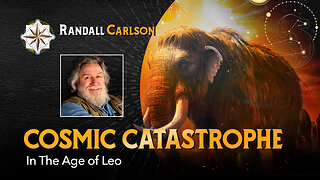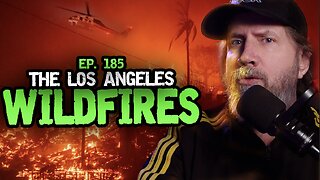Premium Only Content

THE GONDOLIER OF LOVE by Castro Alves (Castro Alves, BA, Brazil, 1847-. Salavador, BA, Brazil1871
A bit from the author:
Antônio Frederico de Castro Alves (Fazenda Cabaceiras,[note 1] Parish of Curralinho, Vila de Nossa Senhora do Rosário do Porto da Cachoeira, March 14, 1847 — Salvador, July 6, 1871) was a Brazilian poet.[10] He wrote classics such as Espumas Flutuantes and Hinos do Ecuador that raised him to the position of greatest among his contemporaries, as well as verses from poems such as Os Escravos, A Cachoeira by Paulo Afonso and Gonzaga that earned him epithets such as "poet of slaves" and "republican poet " by Machado de Assis, or descriptions of being "a national poet, if not more, a nationalist, social, human and humanitarian poet", in the words of Joaquim Nabuco,[10] of being "the greatest Brazilian poet, lyric and epic", in the words of Afrânio Peixoto,[10] or even being the "walking apostle of condoreirismo" and "a volcanic talent, the most enraptured of all Brazilian poets", in the words of José Marques da Cruz.[11] He was part of the romantic movement, forming part of what scholars call the "third romantic generation" in the country.[12]
He began his major production at the age of sixteen, and his verses in Os Escravos began at seventeen (1865), with wide dissemination in the country where they were published in newspapers and recited, helping to form the generation that would conquer abolition; José de Alencar said of him, when he was still alive, that "throbs in his work the powerful feeling of nationality, that soul that makes great poets, like great citizens".[10] Alongside Luís Gama, Nabuco, Ruy Barbosa and José do Patrocínio, he stood out in the abolitionist campaign "in particular, the figure of the great Bahian poet Castro Alves".[13] His greatest influences were the romantic writers Victor Hugo, Lord Byron, Lamartine, Alfred de Musset and Heinrich Heine.[14]
Historian Armando Souto Maior says that the poet, "as Soares Amora points out, 'on the one hand, he marks the arrival point of romantic poetry, on the other hand, he announces, in some poetic processes, in certain images, in political and social ideas, Realism.' Nevertheless, he must be considered the greatest Brazilian romantic poet; his social poetry against slavery galvanized the sensibility of the time."[15] Manuel Bandeira says that "the only and authentic condor in these bombastic Andes of Brazilian poetry was Castro Alves, a truly sublime, whose glory is invigorated today by the social intention he put into his work".[16]
In the words of Archimimo Ornelas, "We have Castro Alves, the revolutionary; Castro Alves, the abolitionist; Castro Alves, the republican; Castro Alves, the artist; Castro Alves, the landscaper of American nature; Castro Alves, the poet of youth; Castro Alves, universal poet; Castro Alves the seer; Castro Alves, the national poet par excellence; finally, in all human manifestations we can find that revolutionary force that was Castro Alves" and, above all, "Castro Alves as the man who loved and was beloved".[17]
(Source: https://pt.wikipedia.org/wiki/Castro_Alves)
Mais sobre o texto originalÉ necessário fornecer o texto original para ver mais informações sobre a tradução
Enviar feedback
Painéis laterais
..........
Um pouco do autor:
Antônio Frederico de Castro Alves (Fazenda Cabaceiras,[nota 1] Freguesia de Curralinho, Vila de Nossa Senhora do Rosário do Porto da Cachoeira, 14 de março de 1847 — Salvador, 6 de julho de 1871) foi um poeta brasileiro.[10] Escreveu clássicos como Espumas Flutuantes e Hinos do Equador que o alçaram à posição de maior entre seus contemporâneos, bem como versos de poemas como Os Escravos, A Cachoeira de Paulo Afonso e Gonzaga que lhe valeram epítetos como "poeta dos escravos" e "poeta republicano" por Machado de Assis, ou descrições de ser "poeta nacional, se não mais, nacionalista, poeta social, humano e humanitário", no dizer de Joaquim Nabuco,[10] de ser "o maior poeta brasileiro, lírico e épico", no dizer de Afrânio Peixoto,[10] ou ainda de ser o "apóstolo andante do condoreirismo" e "um talento vulcânico, o mais arrebatado de todos os poetas brasileiros", no dizer de José Marques da Cruz.[11] Integrou o movimento romântico, fazendo parte no país daquilo que os estudiosos chamam de "terceira geração romântica".[12]
Começou sua produção maior aos dezesseis anos de idade, e seus versos de Os Escravos foram iniciados aos dezessete (1865), com ampla divulgação no país onde eram publicados nos jornais e declamados, ajudando a formar a geração que viria a conquistar a abolição; José de Alencar disse dele, quando ainda em vida, que "palpita em sua obra o poderoso sentimento de nacionalidade, essa alma que faz os grandes poetas, como os grandes cidadãos".[10] Ao lado de Luís Gama, Nabuco, Ruy Barbosa e José do Patrocínio, destacou-se na campanha abolicionista "em especial, a figura do grande poeta baiano Castro Alves".[13] Teve por maiores influências os escritores românticos Victor Hugo, Lord Byron, Lamartine, Alfred de Musset e Heinrich Heine.[14]
O historiador Armando Souto Maior diz que o poeta, "como assinala Soares Amora 'por um lado marca o ponto de chegada da poesia romântica, por outro já anuncia, nalguns processos poéticos, em certas imagens, nas ideias políticas e sociais o Realismo.' Não obstante, deve ser considerado o maior poeta romântico brasileiro; sua poesia social contra a escravidão galvanizou a sensibilidade da época."[15] Diz Manuel Bandeira que "o único e autêntico condor nesses Andes bombásticos da poesia brasileira foi Castro Alves, criança verdadeiramente sublime, cuja glória se revigora nos dias de hoje pela intenção social que pôs na sua obra".[16]
No dizer de Archimimo Ornelas, "Temos Castro Alves, o revolucionário; Castro Alves, o abolicionista; Castro Alves, o republicano; Castro Alves, o artista; Castro Alves, o paisagista da natureza americana; Castro Alves, o poeta da mocidade; Castro Alves, poeta universal; Castro Alves o vidente; Castro Alves, o poeta nacional por excelência; enfim, em todas as manifestações humanas poderemos encontrar essa força revolucionária que foi Castro Alves" e, sobretudo, "Castro Alves como o homem que amou e foi amado".[17]
-
 4:17:00
4:17:00
Tundra Tactical
14 hours ago $11.11 earnedSHOT SHOW 2025!!!!!! Whats Are We Looking Forward To Most
61.7K8 -
 25:33
25:33
marcushouse
1 day ago $24.47 earnedStarship Exploded! What Went Wrong? Flight Test 7 Explained
111K47 -
 1:00:50
1:00:50
Squaring The Circle, A Randall Carlson Podcast
23 hours ago#035 Cosmic Catastrophe In The Age Of Leo - Squaring The Circle: A Randall Carlson Podcast
69.5K28 -
 1:33:14
1:33:14
Jamie Kennedy
1 day agoThe LA Fires...
49.8K12 -
 2:01:45
2:01:45
Quite Frankly
1 day ago"Inauguration Eve: Trump Time Travel Review" 1/17/25
48.5K35 -
 58:42
58:42
SGT Report
4 months agoYour REAL NEWS vs. CIA Mockingbird LIES -- Sam Anthony
176K96 -
 2:59
2:59
LimitlessAmbition
1 day ago $9.88 earnedPROVE THEM WRONG With This POWERFUL Motivation!
100K2 -
 8:31:37
8:31:37
G2G Gaming Channel
16 hours agoGive me my Helmet, Im going in!! #RumbleGaming
106K2 -
 4:45:11
4:45:11
MoFio23!
14 hours agoNintendo Switch It UP Saturdays with The Fellas: LIVE - Episode #3
68.2K7 -
 6:23:10
6:23:10
SquallRush
13 hours agoMarvel Rivals Collab
53.4K1